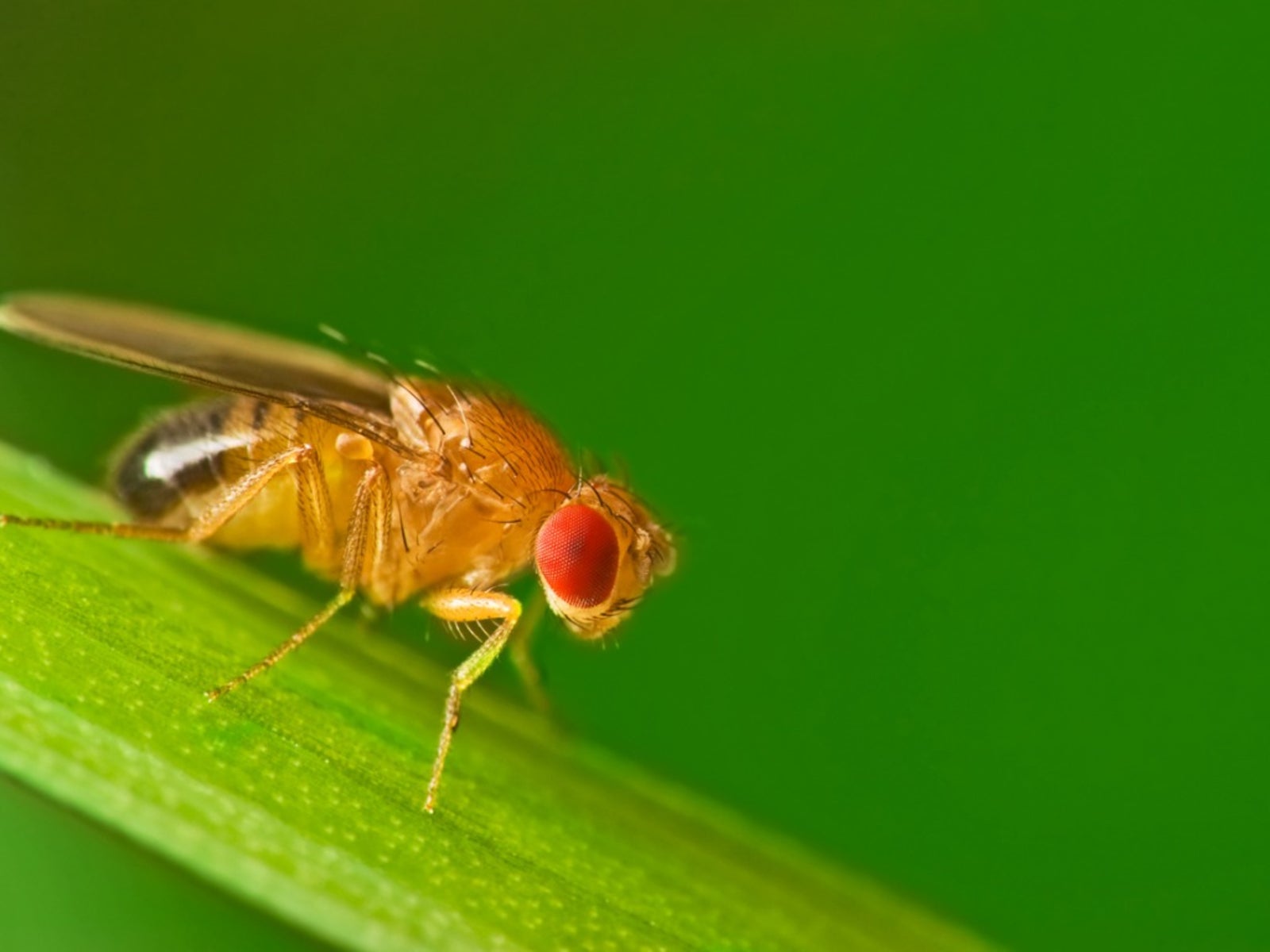Controlling Fruit Flies: How To Get Rid Of Fruit Flies In Garden Areas And Indoors


Sign up for the Gardening Know How newsletter today and receive a free copy of our e-book "How to Grow Delicious Tomatoes".
You are now subscribed
Your newsletter sign-up was successful
Those pesky little flies that seem to flood your kitchen from time to time are known as fruit flies or vinegar flies. They are not only a nuisance but can carry harmful bacteria. Although they are very tiny, only 1/6 of an inch (4 mm.) long, fruit flies in the home are unsanitary and annoying—both indoors and out. Female fruit flies can lay up to 25 eggs per day on the surface of ripe fruits, vegetables, salad remains, or even in drains or moist mop buckets. Controlling fruit flies in the home and even fruit flies in garden areas, is not difficult once you get rid of the source of attraction. Keep reading for tips on getting rid of fruit flies.
How to Get Rid of Fruit Flies Inside
Fruit flies are attracted to overripe fruits and vegetables and are especially fond of bananas, tomatoes, squash, grapes, and melons. One of the best ways to control fruit flies in the home is to practice excellent sanitation, eliminate rotting fruits and vegetables and keep as much food in the refrigerator as possible. Keep counters, sinks, and drains clean at all times. Trash should be kept tied and taken out frequently and compost scraps should not be allowed to pileup on the counter. Cracked or damaged portions of fruits and vegetables should be cut off and discarded immediately to prevent infestation. Chemical control is not recommended, however, you can make your own trap by rolling a piece of notebook paper up and placing it in a jar with some apple cider vinegar in the bottom. Flies will be attracted to the vinegar and you can easily dump them outside.
Fruit Flies in the Garden
Fruit flies overwinter in garden debris, making it necessary to keep your garden area clean. Do not leave rotting fruit or vegetables or plant material in your garden. Just as in the kitchen, a clean garden area will help keep the flies at bay when you're controlling fruit flies. Getting rid of fruit flies in garden areas also involves proper compost bin management. Compost left unattended will attract an overwhelming number of fruit flies. Keep compost aerated/turned and, if possible, contained with a lid or a tarp to reduce the number of flies.
Sign up for the Gardening Know How newsletter today and receive a free copy of our e-book "How to Grow Delicious Tomatoes".

Susan Patterson is a master gardener, author, and educator with more than 30 years of hands-on experience growing vegetables, herbs, and medicinal plants. She specializes in edible gardening, sustainable living, and the practical use of plants for health and wellness. A longtime instructor with the West Virginia Herb Association, Susan is passionate about teaching others how to grow, preserve, and use their own food. Through her books, articles, and her work with Earthenmamma, she empowers readers to cultivate thriving gardens – and healthier lives – wherever they live. She resides in Arizona.